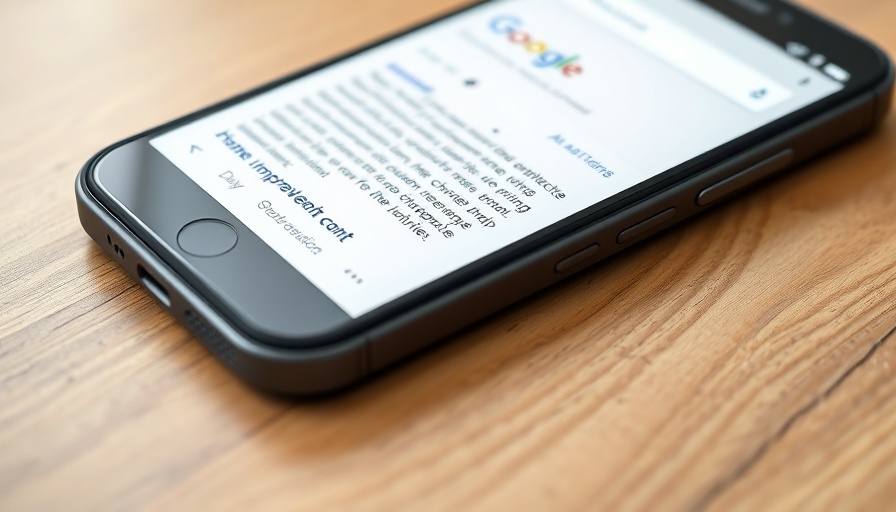
Understanding Google’s AI Overview: A Tool with Limitations
Since its release in May 2024, Google’s AI Overview has made quite an impression as a helpful resource for DIY enthusiasts. However, many users are left wondering: can it really be trusted for reliable advice? While Google Overview is certainly useful, experts advise caution when relying solely on its suggestions. Chris Deziel, a seasoned DIY journalist, warns that AI tools like this can misinterpret data, leading to inaccurate or misleading conclusions.
Why Cross-Referencing is Essential
Taking advice from Google Overview can often feel like getting quick tips from a friend, but just like informal advice, it necessitates validation. As noted by ChatGPT, "AI results can be useful but should be taken with a grain of salt. Double-checking and cross-referencing is key for successful DIY outcomes!" This sentiment is echoed in research, indicating that while AI-driven resources provide a starting point for many, expert opinions and detailed sources should not be overlooked.
Recent Examples of Misinformation
In a fascinating anecdote, Deziel shares a personal experience querying the sweetness comparison between pears and oranges. The AI stated that oranges are generally sweeter, which contradicted his own experience. After delving deeper into the sources linked by AI, he discovered that the data behind the AI's claim was inconclusive. Such subtle inaccuracies illustrate a critical lesson about trusting AI results without context.
Tech Illusions: Are You Getting the Full Picture?
Interestingly, a separate example involved a question regarding whether plugging multiple devices into a single outlet affects charging speed. The AI suggested that it could slow down charging; however, electrical experts disagree. Such misinterpretations highlight the knowledge gaps that can arise when AI pulls together disparate pieces of information without a comprehensive understanding.
Evaluating DIY Project Instructions
When searching for DIY project instructions or maintenance tips, it’s tempting to take AI-generated answers at face value. However, experts caution that many AI-derived instructions are a mix of credible and dubious sources. Always seek out well-reviewed instructional videos or articles from reliable authors to ensure safety and accuracy in your projects.
The Takeaway: Using AI Wisely
For DIY enthusiasts, Google Overview can serve as a good starting point or quick reference. However, the importance of thorough research cannot be stressed enough. Utilize AI tools decisively by following links to reputable sources and consulting experienced voices in the DIY community. In a rapidly evolving technology landscape, taking the time to verify information can save you headaches—and possibly even hazardous situations—down the line.
As you navigate DIY projects, consider how leveraging multiple sources can empower your DIY experiences and outcomes. Don't forget to cross-check those AI-guided tips with credible sources to ensure you're on the right track!
 Add Row
Add Row  Add Element
Add Element 


 Add Row
Add Row  Add
Add 

Write A Comment